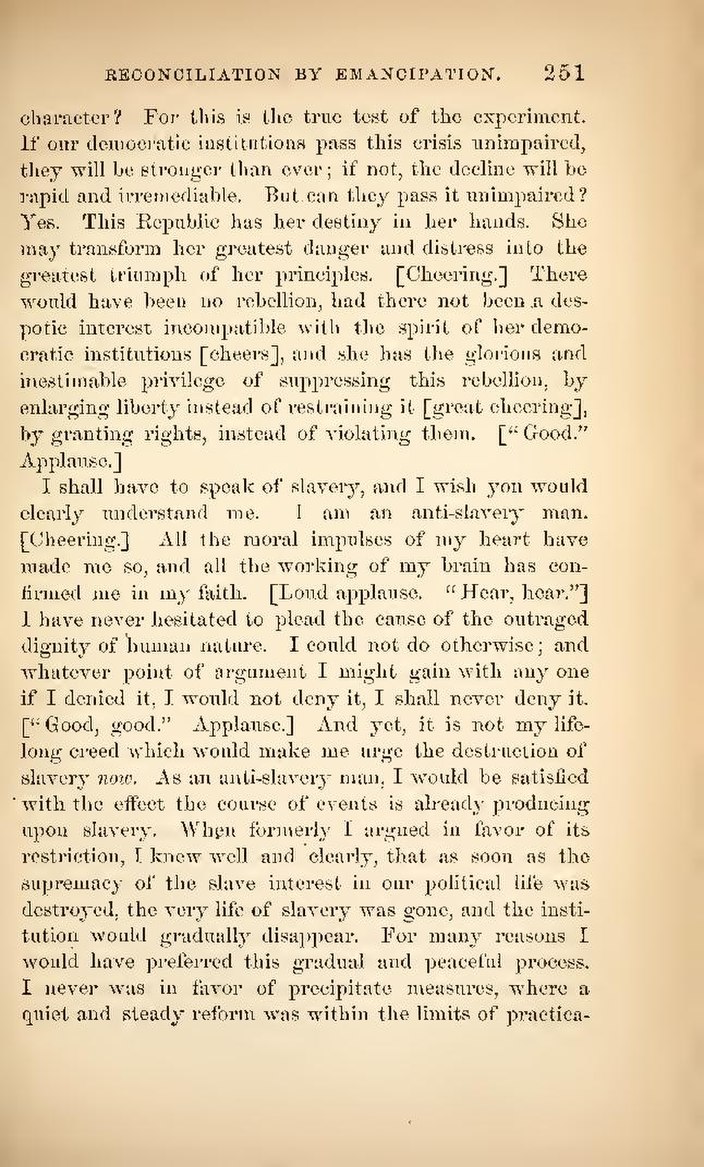character? For this is the true test of the experiment. If our democratic institutions pass this crisis unimpaired, they will be stronger than ever; if not, the decline will be rapid and irremediable. But can they pass it unimpaired? Yes. This Republic has her destiny in her hands. She may transform her greatest danger and distress into the greatest triumph of her principles. [Cheering.] There would have been no rebellion, had there not been a despotic interest incompatible with the spirit of her democratic institutions [cheers], and she has the glorious and inestimable privilege of suppressing this rebellion, by enlarging liberty instead of restraining it [great cheering], by granting rights, instead of violating them. [“Good.” Applause.]
I shall have to speak of slavery, and I wish you would clearly understand me. I am an anti-slavery man. [Cheering.] All the moral impulses of my heart have made me so, and all the working of my brain has confirmed me in my faith. [Loud applause. “Hear, hear.”] I have never hesitated to plead the cause of the outraged dignity of human nature. I could not do otherwise; and whatever point of argument I might gain with any one if I denied it, I would not deny it, I shall never deny it. [“Good, good.” Applause.] And yet, it is not my life-long creed which would make me urge the destruction of slavery now. As an anti-slavery man, I would be satisfied with the effect the course of events is already producing upon slavery. When formerly I argued in favor of its restriction, I knew well and clearly, that as soon as the supremacy of the slave interest in our political life was destroyed, the very life of slavery was gone, and the institution would gradually disappear. For many reasons I would have preferred this gradual and peaceful process. I never was in favor of precipitate measures, where a quiet and steady reform was within the limits of practica-
